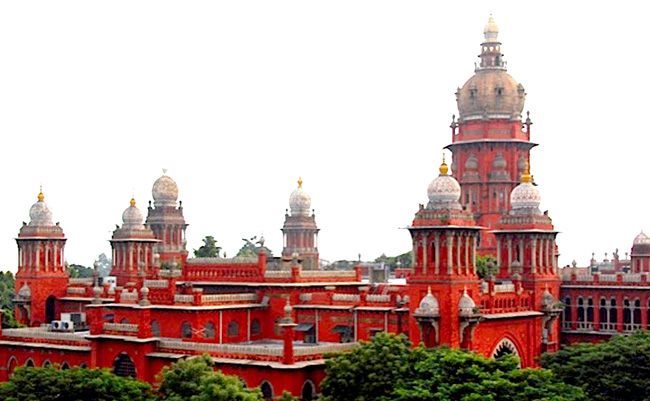The Division Bench of the Madras High Court, comprising Chief Justice Munishwar Nath Bhandari and Justice D. Bharatha Chakravarthy in the case of V. Vasanthakumar Vs The Union of India has declared Section 32 of Benami Property Transactions Act, 1988 unconstitutional by referring to the judgment passed by the Supreme Court that member of Indian Legal Service cannot be appointed as Judicial Member in any Tribunal.
Submission of the Petitioner
The Counsel on the behalf of the Petitioner has submitted that the qualification for appointment as a Judicial Member of the Appellate Tribunal given under Section 32 of the Act of 1988 is now hit by the judgment of the Apex Court in the case of Union of India v. R.Gandhi, President, Madras Bar Association. In this case, Apex Court held that the post of Judicial Member should be manned only by a person who served as a Judge or a member of the Bar and not by a member of Indian Legal Service.
Reasoning and Decision of the Court
The Court made perusal of Section 32 of the Act which entails “Qualifications for appointment of Chairperson and Members of Appellate Tribunal”.—
(1) A person shall not be qualified for appointment as Chairperson of the Appellate Tribunal unless he is a sitting or retired Judge of a High Court, who has completed not less than five years’ of service.
(2) A person shall not be qualified for appointment as a Member unless he—
- in the case of a Judicial Member, has been a Member of the Indian Legal Service and has held the post of Additional Secretary or equivalent post in that Service;
- in the case of an Administrative Member, has been a Member of the Indian Revenue Service and has held the post of Chief Commissioner of Income tax or equivalent post in that Service.
- No sitting Judge of a High Court shall be appointed under this section except after consultation with the Chief Justice of the High Court.
(3) The Chairperson or a Member holding a post as such in any other Tribunal, established under any law for the time being in force, in addition to his being the Chairperson or a Member of that Tribunal, may be appointed as the Chairperson or a Member, as the case may be, of the Appellate Tribunal under this Act."
The Court further analyzed the case laws submitted by the Petitioner and expounded that the principle laid down in the case of Union of India v. R.Gandhi, President, Madras Bar Association, has application to all the Tribunals and was not rendered on the fact situation alone. It is for that reason a specific direction was given that administrative support for all the Tribunals should be from the Ministry of Law and Justice. The principal issue decided qua the basic structure of constitution ensures the separation of powers and independence of the Judiciary from the clutches of the Executive.
After analyzing the Judgments, the Court observed that though a constitutional court can declare a provision to be unconstitutional, it should not give any direction to the Legislature to make an amendment in a particular way. The judicial restraint is, therefore, being hailed as a virtue. However, in a case where a direction has been given by the Apex Court to have the judicial independence, it is required to be followed by the High Court’s as well as the Executive.
Therefore, the Court granted the petitioner’s prayer and held that Section 32(2)(a) of the Act of 1988 unconstitutional. Government is directed to frame the provision keeping in mind the directions of the Apex Court in the case of Union of India v. R.Gandhi, President, Madras Bar Association. The amended provision may be brought in immediately.
Case Details
Case: - W.P.No.13429 of 2018
Petitioner: - V. Vasanthakumar
Respondent: - The Union of India
Judge: Chief Justice Munishwar Nath Bhandari and Justice D. Bharatha Chakravarthy
Picture Source :


























